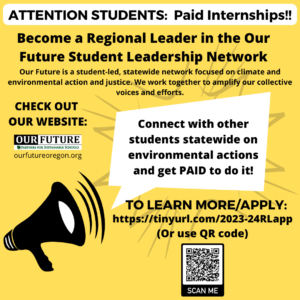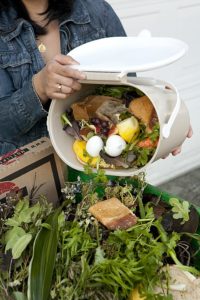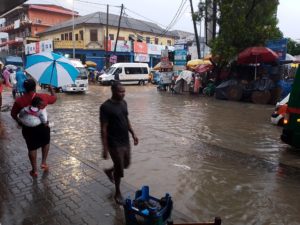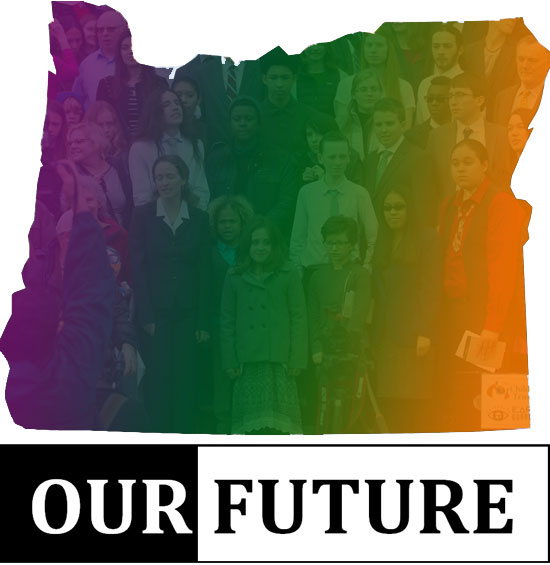
Our Future Newsletter: May/June 2023
Thank you for staying informed about what Our Future is working on, both in individual schools and as a statewide network. The newsletter content is primarily produced by Our Future’s Regional Leaders team and the OF Newsletter Committee. To suggest content or to provide feedback, please use the comment form at the bottom of the page.
 For students who aren’t already involved with the Our Future network: we are looking for new students in a variety of cities throughout Oregon. If you are interested, please fill out the internship application.
For students who aren’t already involved with the Our Future network: we are looking for new students in a variety of cities throughout Oregon. If you are interested, please fill out the internship application.
PSS staff would like to express our deep gratitude for students who have led the network this year, and a handful of these students are graduating high school or leaving the program for other reasons. Each student has contributed in their own way towards the success of the Our Future high school leadership program, and we know that the network is stronger because you all. Thank you very much, and please keep in touch! ~ Mel, Tami and Joshua
In This Issue:
Earth Month – Positive Climate News Summary
(Content written by Our Future Regional Leader – Amelia Prins – South Salem High)
Happy Earth month! In the midst of negative, discouraging predictions and data about climate change, it can be easy to get discouraged. This earth month, let’s celebrate by looking back on all of the progress that we have made this year! The environmental movement is gaining momentum!
In recent years, countries have begun to ban plastic bags in hopes of restricting the amounts of harmful plastics that end up in our environment. Today, 100 countries have banned plastic bags, either partially or completely. This is a huge step in the right direction. In addition, some countries are taking these important restrictions a step further. Australia has now capped oil and gas emissions, which will prevent 200 million tonnes of carbon dioxide from entering our atmosphere within the next ten years. Positive legislation like this is not only great for preventing emissions, but for setting an example for other countries. International involvement in the climate crisis has spiked as well. The UN recently held a vote in which they decided to hold countries legally responsible for the damage that they are doing to the environment. This could help countries to take climate change seriously. It is encouraging to see governments taking action!
There have also been technological developments that have the potential to have a huge, positive impact on the climate crisis. One example of this is developments in electric planes. Electric planes have been thought of as a faraway, near-impossible, futuristic concept. However, scientists are growing closer every day to developing a solution. A recent development in technology has led to batteries with a much higher energy density, which may be the key to electric plane development. Scientists have also been working on a plant-based film which could be an alternative to harmful air conditioning. This would greatly help to reduce carbon emissions as well.
Scientific developments and legislation like this shows that all of the action that people like you have been taking is making a difference. Our battle against climate change is far from lost, and the movement is only growing!
https://www.forbes.com/sites/simonmainwaring/2023/04/17/its-not-all-bad-the-year-in-positive-environmental-news/?sh=57ebc0bd388b
https://www.euronews.com/green/2023/04/10/here-are-all-the-positive-environmental-stories-from-2023-so-far#:~:text=Positive%20environmental%20stories%20from%20April%202023&text=Over%20100%20countries%20now%20have,out%20plastic%20carryout%20bags%20tripled.
JOIN THE MOVEMENT: Building Equitable Climate Action Plans in Oregon Schools
(Content written by Our Future Regional Leader – Lily Yao – South Eugene High)
 Dear Community Members,
Dear Community Members,
Our Future is excited to share one of our leading initiatives. We are seeking to address the important issue of climate change within our schools through the development of Equitable Climate Action Plans, or ECAPs for short.
Why?
Climate change poses a significant risk to the well-being of students, staff, and the broader community. As educational institutions and establishments with a substantial amount of influence in our society, school districts have the potential to set an example by creating climate-oriented plans for the future and promoting carbon-conscious practices. In doing so, we hope that our schools can aid in inspiring students, to create a generation of green-minded leaders.
So, what is an ECAP anyways…?
An ECAP is a comprehensive framework that outlines a district’s approach to addressing climate change within our schools, with a particular focus on equitable and sustainable practices.
To better understand what an ECAP entails, we have provided a LINK, which includes the specifics of an ECAP along with examples of district-wide climate resolutions created by Eugene 4J and Bend School Districts.
Our request to you…
We are happy to announce that our team of student leaders across Oregon is working on this initiative. However, we need your help! Now, more than ever, we need our community to stand united against the devastating effects of the climate crisis. Securing your support will be a powerful endorsement in supporting students as we strive to take action in our school districts.
Take action in these ways:
- Click HERE to sign a personal pledge of support;
- Write an official letter of support, and email it to info@ourfutureoregon.org (please contact us for key talking points for an official support letter);
- Share this letter with others so they can get involved.
Please join us in building Equitable Climate Action Plans in Oregon school districts and creating a more sustainable future for students and for generations to come.
Thank you for your support!
-Our Future Regional Leaders & ECAP Team
Cafeteria Waste Reduction (CWR) Team report:
(Content written by Our Future Regional Leader – Alex Wang, Lake Oswego High)

We hope this newsletter finds you well and enjoying the beautiful spring weather. As always, Our Future Regional Leaders (RLs) have been hard at work, and we are excited to share updates on our latest efforts to promote environmental sustainability and education in our schools.
Over the past few months, RLs have been collaborating with schools in the Our Future network to reduce cafeteria waste through composting, implementing share tables (a.k.a. “No thank you” tables), and promoting a plastic-free future. We have seen tremendous progress and are proud to share some of our success stories.
TIER SYSTEM
We have created a tier system to categorize every school we are involved in and carry out actions accordingly, as shown below.
Tier 1:
- Creating Infographics
- Presenting Documentaries/Videos
- Recycling Bins (Material Specific)
Tier 2:
- Share Table Composting
- Reusable Dishware
Tier 3:
- Fresh, local, in season produce
- Half portion size option
INTERVIEWS WITH CWR REGIONAL LEADERS
Elena Hagen (Corvallis High School):
Kiara and I have been working on implementing composting in our school. We have faced some challenges. For example, the custodial staff is not willing to help so it would have to be completely run by students. To get some support from the district, Kiara and I presented to the school board on May 4th. This was intimidating to us but we got some support and composting kits were sent to our schools! We are going to meet with a member of the district to further plan composting at Corvallis High School in the coming years!
Kiara Burnside (Corvallis High School):
We’ve been trying to get composting going but our custodians are understaffed so they weren’t able to but we talked to the school board and discussed getting support for implementing it in future years. Other than that we’ve created posters for waste reduction week and are currently working on doing a waste audit in a few weeks.
Siri Kovi (Westview High School):
My school (Westview) is currently on tier 1, so we are working on spreading awareness about cafeteria and food waste and we passed out flyers and stickers for food waste prevention week a couple weeks back.
We are also working on promoting our school’s share table, which exists, but we are working on advertising it to students and staff. I also know that Ashland is doing the same with the share table and is working on the industrial composting system at their school
Nima Tholiyil (Westview High School):
At Westview high school we’ve not yet been able to implement a full compost, but we’ve learned that we do in fact have a small scale compost for our foods classes, and also have food scraps taken from the kitchen to a nearby composting site every week. We also started making posters to advocate about the true influence food waste has on climate change.
CASE STUDY – SUCCESS AT WEST SALEM HS
John Bateman (West Salem High School):
The idea for composting started last year. Initially the plan was to have a local composting operation at West Salem HS. This would have meant the responsibility for maintenance and care would have fallen on the environmental club. We realized that this would not be sustainable in the long run, and we decided that a commercial composting plan, where a waste hauler would come and pick up our food waste so they can compost it, was a much better plan.
With this decided, I met with my principal, filled him in on the new and improved idea, and talked about next steps. He spoke with the appropriate people from the school district and inquired as to whether composting was something we could add to our waste hauling plan. They responded that yes, this was something that was open to us. We knew that part of this effort was spreading awareness among the student body about the importance of composting, but we didn’t want the success of the composting program to be dependent on student involvement. We needed buy in from the custodial staff to make this a sustainable and worthwhile project.
We scheduled a meeting with our head custodian, whose main concern was animals and pests getting into the outside bins. Once that was addressed, he said that this idea was a possibility. I contacted our waste hauler and told them that West wanted to implement composting. I asked whether they had any bin designs that would keep animals out. They said they didn’t, but they would come up with something. The following week, they delivered 2 roll carts with lockable latch mechanisms. Now we just needed to figure out our internal system.
I did mention that I wanted the system to not be dependent on student volunteers, and this was/is the eventual goal. However, in order to get this system up and running successfully I needed some help. I went to the environmental club and told them that for the first month of having bins in the cafeteria, we were going to station student volunteers at bins in the cafeteria to be available to answer questions and prevent contamination. I gathered a list of names of people willing to help, what lunch they had on any given day of the week (it changes from day to day), and the level of interest they had. With this list of names, I made a schedule for who would watch bins.
Next, we had to figure out the size of the inside bins and what kinds of bags (if any) we were going to use. Our custodian didn’t want the bins to be too large because food is heavy, and didn’t want it to be a hassle for custodians to dump. We decided on 20 gallon buckets and are waiting for those to arrive. The decision was ultimately made to use plastic bags in the bins, dump the food out of them into the outside bin, and then trash the bag. While not the ideal situation, it was decided that when compared with paper bags, (which are way more expensive and easily dissolvable when coming into contact with wet food), and no bag at all (which would require daily washing and drying of bins), plastic bags were a good starting point.
A few weeks ago we had a food waste audit conducted by workers from the Mid Valley Garbage and Recycling Association. This told us the amount of different types of trash both of our lunch periods were producing, and will help us in determining whether more internal or external bins are needed. Additionally, after continued CWR efforts are implemented, we will be able to conduct another food waste audit and see how effective our efforts have been at reducing waste.
Another important aspect of this project is the education. I have written scripts for our video announcements which are shown every week, telling the school about the food waste audit and to be on the lookout for composting bins in the next few weeks. I also created a handy dandy poster that will be hung around the cafeteria and on bins that will tell people what they can and cannot compost.
WHAT’S NEXT
We are thrilled to announce that RLs will continue working with schools in the Our Future network in the following years to further promote cafeteria waste reduction (CWR) and implement best practices in our schools. Our goal is to create a sustainable future for ourselves and generations to come.
HOW TO GET INVOLVED
- Get informed: Learn more about CWR and its impact on the environment. We have a “call to action” list where people would receive bi-monthly emails about opportunities to get involved in sustainable actions. Sign up here→
- Give feedback: Share your thoughts and ideas on how we can reduce cafeteria waste and promote sustainability in our schools.
- Get involved: Join the CWR initiative by implementing composting, share tables, and plastic-free initiatives in your school. You can also share your success stories with us, and we will feature them in future newsletters.
Climate News

(Content written by Our Future Regional Leader – Sam Hart, Early College HS in Salem)
- Oregon has been granted $3 million by the U.S. Environmental Protection Agency to support our climate action plan – with an additional $1 million going to the Portland Metro area. “This effort builds on an aggressive climate strategy already underway in Oregon, providing additional resources to the state to engage urban and rural communities, and develop climate solutions.” says Cassie Sixkiller, EPA Region 10 Administrator. Oregon should receive the money this summer and be able to put it into action reducing pollution and building clean energy economies throughout Oregon.
- The Northwest Environmental Defense Center, a Portland based environmental group, is suing The Oregon Department of Environmental Quality for causing algea blooms and poor water quality in the Willamette River by issuing Ross Island and Gravel a permit allowing them to refill parts of the Ross Island Lagoon. Because this lagoon is full of stagnant water, it can be the source of algae blooms that take over the Willamette River, which negatively impacts pets, citizens, and wildlife. DEQ has claimed that Ross Island Lagoon’s actions will not negatively impact water quality, but The Northwest Environmental Defense Center is dedicated to preserivngpreserving the Willamette River and willing to take whatever steps necessary to prevent algae blooms from destroying the river.
Learn more here: https://www.kgw.com/article/tech/science/environment/ross-island-algae-blooms-willamette-river-lawsuit-deq/283-413c50b3-7587-46ea-8fc2-e0b73d6da419
- Two bills that work to ban styrofoam by 2025 just passed in the Oregon senate. SB 543, a bill would ban polystyrene takeout containers -– including styrofoam -– and SB 545, which calls for the Oregon Health Authority to create rules regarding consumers bringing reusable containers to restaurants for takeout and leftovers. If SB 543 were signed by Kotek, it would go into effect on Jan 1. 2025.
Learn more here:
International Climate News
In the U.S. and beyond
- The average global temperature of April of 2023 tied with April of 2010 for the 5th hottest April on record. However, North America had it’s coldest April since 2018
Learn more here:
https://www.ncei.noaa.gov/news/global-climate-202204
- COP28 (conference of the parties, also known as the United Nations Climate Change Conference) is launching the International Youth Climate Delegate Program. International YCDP will sponsor 100 young people this year, allowing them to attend COP28. The program’s goals are to incorporate views and proposals of youth into global policies and conversations, build the skills and networks of passionate youth, and model the inclusion of young people for the COP process. The program focuses on participants between the ages of 18 and 35, especially those from marginalized communities.
Learn more here:
- Brazil is trying to move away from economyic models based around the exploitation of resources and into a more sustainable “bioeconomy.” By focusing on turning small, sustenance-level farms and cooperatives into successful small businesses, such as acai and cacao farmers, they hope to reduce deforestation and improve Brazil’s economy.
Learn more here:
https://www.context.news/nature/more-forest-more-profit-brazil-looks-to-build-a-new-bioeconomy
 For students who aren’t already involved with the Our Future network: we are looking for new students in a variety of cities throughout Oregon. If you are interested, please fill out the internship application.
For students who aren’t already involved with the Our Future network: we are looking for new students in a variety of cities throughout Oregon. If you are interested, please fill out the internship application.
"*" indicates required fields
To provide feedback, or suggest topics, please fill out this form!


